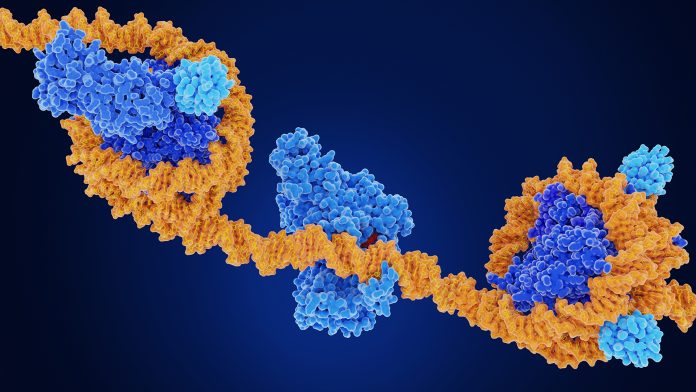
Researchers from the University of Barcelona have explained the role epigenetics can play in clinical cancer treatment.
In the early 1980s, methylation was discovered and with it the first changes in cancer-related to a chemical modification. This was followed by the discovery of the first tumour suppressor genes in the 1990s, inactivated by modifications of the genetic material. These altered marks were first used as a biomarker of cancer disease in the early 2000s, as well as the first uses of drugs against them. Around this time, the first chemical modifications were detected in proteins called histones. In these proteins’ DNA wraps around the histones like a pearl necklace. These ‘decorations’ of DNA and its regulatory proteins define the field of Epigenetics.
Dr Manel Esteller, Director of the Josep Carreras Leukaemia Research Institute (IJC), ICREA Research Professor and Professor of Genetics at the University of Barcelona, and researcher Dr Verónica Dávalos explained the impact of epigenetics on the clinical management of cancer patients.
The full paper has been published in the journal CA: A Cancer Journal for Clinicians
Epigentics can help with early cancer detection
“Epigenetics has gone from being a purely basic research discipline focused on studying how gene expression is controlled to a tool to improve early detection, predict the evolution of the disease and become a target for new treatments,” said Dr Esteller.
One of the most notable aspects of epigenetics is its clinical translation and its use in liquid biopsy. Epigenetics can help with the classification of tumour types. It can allow clinicians to correctly diagnose the types of tumours derived from the brain, skeletal muscles, joints, bones or of unknown origin.
Additionally, DNA methylation profiles are can determine the efficacy of treatment in brain tumours and other tumour pathologies.
Epigenetic drugs can treat a range of cancer-related illnesses
One of the most attractive aspects of epigenetics is it potential to use drugs to treat cancer. Currently, there are nine drugs against various epigenetic marks (DNA methylation and histone methylation and acetylation) approved for clinical use. These can be used against various types of leukaemia, lymphoma and blood diseases, as well as tumours in soft tissues.
“These treatments are usually very well tolerated by patients and more than killing the tumour cell, they stop its growth, as if it were a tamed beast,” wrote Dr Esteller.
Epigenetic drugs are already a clinical reality and they are presently providing benefits for cancer patients. However, research continues and there is currently a range of epigenetic drugs currently undergoing different phases of clinical trials.
Whether alone or combined with immunotherapy, researchers believe these epigenetic drugs can make a positive difference to many patients.






















